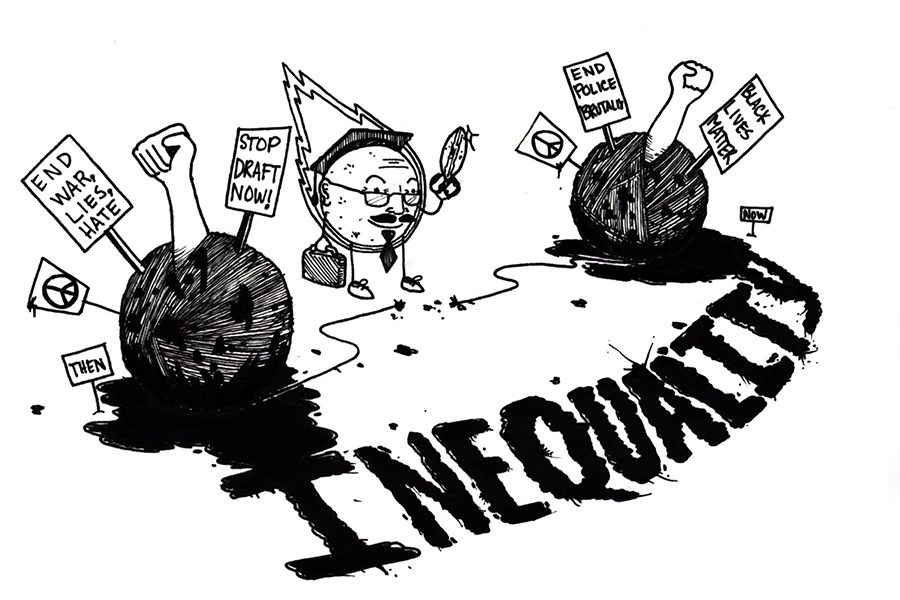Walking backward
Meaningful comparisons overshadowed by curriculum
Oct 6, 2016
“The Black Panther Party and Its Legacy: A Seminar,” missed the chance to compare and contrast the racially charged political climate that created the revolutionary party 50 years ago to present-day social movements.
The event was held on Saturday in the General Education Building as part of the W.E.B. DuBois Lecture Series at Contra Costa College to celebrate the birth of the Black Panther Party with guest speaker Dr. Paul Alkebulan.
Hosted by sociology department Chairperson Vern Cromartie, Dr. Alkebulan went into detail about the Black Panthers’ accomplishments, internal power struggles, battles with the FBI and local police departments, shifts in ideologies and state and federal legislation that broke the movement apart.
But the organizers failed to establish an open dialogue with the 100 students in attendance, and others from East Bay communities who had questions about how the Black Panthers’ ideology is reflected in modern social movements.
Instead of seizing this chance to compare past social conditions in low-income, urban communities to now, Dr. Cromartie instructed Dr. Alkebulan to only answer questions about the party within the context of its 16-year life span and Alkebulan’s scholarly research.
When asked to draw comparison of the Black Panthers’ ideologies to present-day groups like Black Lives Matter, Alkebulan said the social conditions placed on minority groups in America during the 1960s and 70s are vastly different than now.
After the event Dr. Cromartie said he made sure discussions would be contained to the Black Panther Party in the historical time period for the sake of his students’ extra credit assignment.
“I want students to hear voices of people like (Alkebulan). People who have made the shift from a social movement to academia,” Cromartie said. “You have one chance to hear about the Black Panther Party. You can hear about the Black Lives Matter on Channel 7 or 2. You rarely hear about social movements of the past.”
We disagree, mostly because the coverage about the Black Lives Matter on local and 24/7 broadcast news groups is partial, biased and conflict-oriented.
Refusing to relate present-day groups to the Black Panthers infers that no new information could contribute to the discussion of social injustice and de facto racism that pervades the lives of many African-Americans.
While the seminar was informational, restricting people in the audience from asking questions that provide a relatable context does little to inspire solutions for police brutality, the disproportionate incarceration rate of African Americans, unequal access to education, corruption and bias within the election process and the marginalization of the middle class through outsourced labor.
Many would argue that the Jim Crow era is over and the only bastions of racial inequality are small towns in rural areas. But not talking about current social injustices has allowed racism to thrive under the surface of mainstream American society.
For example, the speaker was unaware that there are still people who are using the Black Panthers’ 10-point program, and legacy, to promote their own version of the movement called the Black Riders Liberation Party in Oakland and Berkeley.
Resorting to only talking about the Panthers in their historical time period and not comparing them to protests or movements existing today in similar social conditions is missing an opportunity to lead present-day activist.
The Black Panther revolution is not dead. The problem is that social inequities have been muffled by mainstream media organizations and, in turn, misunderstood by everyday Americans with too much to lose.


